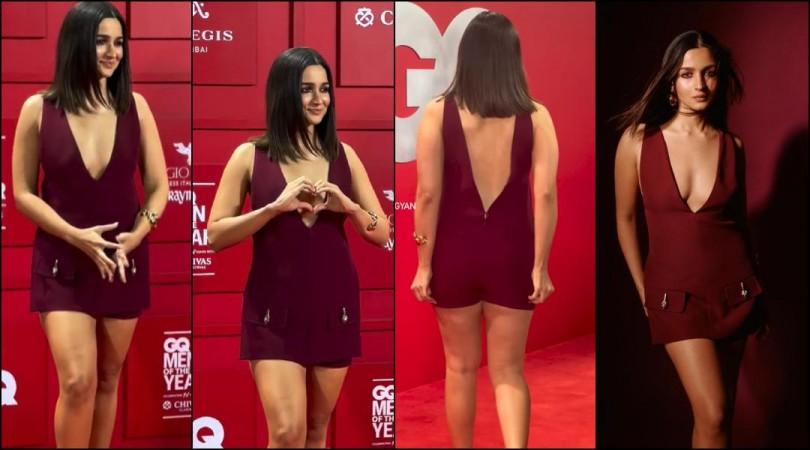From Katrina Kaif to Rashmika Mandanna to Kajol, a lot of celebrities have been falling prey to the DeepFake video scams. Recently, the Delhi police questioned a 19-year-old Bihar youth in connection with the viral deepfake video of Rashmika Mandanna.
The video featured a morphed version of Mandanna entering an elevator in obscene clothes. The misuse of AI technology created an outcry among the film industry with many calling for strict actions and stricter laws. Even the Prime Minister cautioned on the misuse of technology and urged the media to educate people on deepfake videos.

However, soon Katrina Kaif's deepfake video featuring a low-cut top became the talk of the town. And then Kajol's dress-changing video too started making the rounds. And the latest to fall prey is Alia Bhatt. A video of morphed Alia looking into the camera and making obscene gestures is the latest.
Deepkfakes Issue: Indian MoS MeiTY Meets Internet Cos, Draws Red Line.#TNShorts #Deepfake pic.twitter.com/LDTklhSq2d
— TIMES NOW (@TimesNow) November 24, 2023
So What Is Deepfakes?
Deepfakes are the 21st-century answer to Photoshop. Deepfake is digitally altering the face or body of a person in a video using a form of artificial intelligence called deep learning. According to a report in The Guardian, "The AI firm Deeptrace found 15,000 deepfake videos online in September 2019, a near doubling over nine months. A staggering 96% were pornographic and 99% of those mapped faces from female celebrities onto porn stars."
Well, that sounds alarming. It is not just the videos, Deepfake technology can be used to produce convincingly altered photographs and even audio files. Interstingly, Union Minister for Railways, Communications, Electronics and Information Technology Ashwini Vaishnaw has revealed that the government's AI deepfake regulations will be released in the coming weeks. The regulatory drafting process is considering penalties for the individuals creating and uploading such content.


![Nayanthara and Dhanush ignore each other as they attend wedding amid feud over Nayanthara's Netflix documentary row [Watch] Nayanthara and Dhanush ignore each other as they attend wedding amid feud over Nayanthara's Netflix documentary row [Watch]](https://data1.ibtimes.co.in/en/full/806599/nayanthara-dhanush-ignore-each-other-they-attend-wedding-amid-feud-over-nayantharas-netflix.jpg?w=220&h=135&l=50&t=40)











![Nayanthara and Dhanush ignore each other as they attend wedding amid feud over Nayanthara's Netflix documentary row [Watch]](https://data1.ibtimes.co.in/en/full/806599/nayanthara-dhanush-ignore-each-other-they-attend-wedding-amid-feud-over-nayantharas-netflix.jpg?w=220&h=135)


